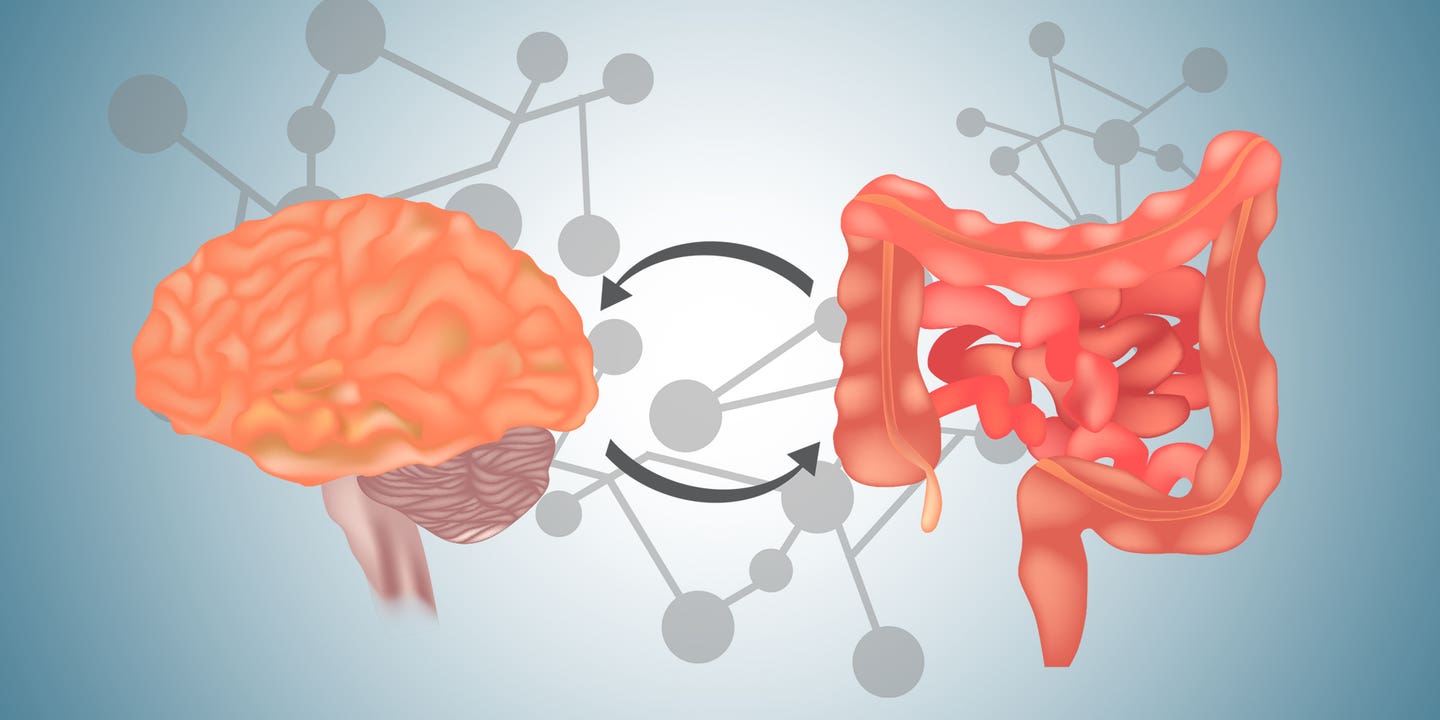Why did human brains grow so big? The surprising link to our gut
Gut microbes play a key role in primate brain evolution by shaping energy metabolism, highlighting new insights into biology and human health.

Gut microbes influence energy metabolism and fueled the evolution of large brains. (CREDIT: CC BY-SA 4.0)
The human brain is an energetic marvel, consuming far more glucose relative to body size than nearly any other organ. This metabolic demand supports critical functions like neuronal signaling, synapse formation, and information processing.
Among primates, the challenge of fueling large brains is particularly pronounced due to their high encephalization quotients (EQs), which measure brain size relative to body size.
Humans, with the largest EQ of any primate, exhibit disproportionately high daily energy expenditures, surpassing what body size alone would predict. However, the biological mechanisms enabling this metabolic adaptation remain elusive.
A new study reveals that gut microbes, the microscopic inhabitants of our digestive systems, may play a crucial role in meeting these energy demands, reshaping our understanding of brain evolution.
Linking Gut Microbiota to Metabolic Needs
The gut microbiota (GM) performs many functions essential to host metabolism, such as producing short-chain fatty acids (SCFAs). These compounds—acetate, butyrate, and propionate—are byproducts of fiber and amino acid fermentation.
SCFAs serve as energy sources and influence critical metabolic processes like glucose production, insulin regulation, and fat deposition. While these microbial metabolites have been linked to conditions like diabetes and obesity, their potential role in fueling the energy-hungry primate brain has been largely unexplored.
Researchers hypothesize that GM variations across primate species could mediate metabolic strategies, enabling some species to prioritize brain energetics while balancing other physiological needs. The study, published in Microbial Genomics, tested this idea by investigating gut microbes' impact on metabolism in a controlled experiment using mice.
Related Stories
In the study, scientists inoculated germ-free mice with gut microbes from three primates: humans, squirrel monkeys, and macaques.
Humans and squirrel monkeys, categorized as "brain-prioritizing" species due to their rapid brain growth and large adult brain size, require significant energy throughout their lifecycles. In contrast, macaques, with slower brain growth and smaller adult brains, allocate less energy to cerebral functions.
Researchers monitored the mice's physiological changes, including weight gain, fat deposition, fasting glucose, and liver function, as well as microbial composition and SCFA production. Their findings revealed striking differences in how the gut microbes influenced host metabolism.
Microbial Impact on Host Biology
Mice with gut microbes from large-brained primates (humans and squirrel monkeys) exhibited higher food consumption, elevated glucose production, and greater energy use. These traits align with the metabolic demands of maintaining a large brain.
Conversely, mice inoculated with microbes from macaques gained weight more rapidly and stored energy as fat, reflecting a metabolic strategy favoring somatic functions over cerebral energetics.
Lead researcher Katherine Amato, an associate professor of anthropology at Northwestern University, explained, “We know the community of microbes in the large intestine can produce compounds that affect aspects of human biology, like metabolism and insulin resistance. This study shows they may also play a role in evolutionary trade-offs.”
The results suggest that gut microbes not only contribute to host metabolism but may also have co-evolved with their primate hosts to support specific energetic strategies. This finding offers a new lens through which to view the evolution of large brains in primates, including humans.
Evolutionary Insights from Microbial Communities
Interestingly, mice inoculated with human and squirrel monkey microbes displayed similar metabolic traits, despite the two primates being distantly related. This suggests that their shared trait of large brains, rather than close evolutionary ancestry, drove similarities in microbial composition and function.
As Amato noted, “These findings suggest that when humans and squirrel monkeys both separately evolved larger brains, their microbial communities changed in similar ways to help provide the necessary energy.”
This research highlights the profound influence of microbial ecosystems on host biology. It supports the hypothesis that gut microbes shape evolutionary adaptations by altering metabolic pathways, providing energy for specific physiological demands like brain growth and maintenance.
The study raises intriguing questions about the broader role of gut microbes in primate evolution. Researchers plan to expand the experiment to include gut microbes from additional primate species with varying brain sizes. They also aim to investigate the specific compounds produced by these microbes and explore their effects on host traits like immune function and behavior.
The implications of this research extend beyond evolutionary biology. By uncovering how gut microbes influence energy metabolism, scientists could develop novel treatments for metabolic diseases and explore strategies to optimize brain health in humans.
The findings underscore the importance of integrating microbial biology into evolutionary studies. While prior research has focused on genetic and environmental factors influencing brain size, this study demonstrates that gut microbes are pivotal players in metabolic adaptation.
The insights gained not only illuminate the evolutionary pressures shaping primate physiology but also offer a compelling new perspective on human health and development.
Note: Materials provided above by The Brighter Side of News. Content may be edited for style and length.
Like these kind of feel good stories? Get The Brighter Side of News' newsletter.
Rebecca Shavit
Science & Technology Journalist | Innovation Storyteller
Based in Los Angeles, Rebecca Shavit is a dedicated science and technology journalist who writes for The Brighter Side of News, an online publication committed to highlighting positive and transformative stories from around the world. With a passion for uncovering groundbreaking discoveries and innovations, she brings to light the scientific advancements shaping a better future. Her reporting spans a wide range of topics, from cutting-edge medical breakthroughs and artificial intelligence to green technology and space exploration. With a keen ability to translate complex concepts into engaging and accessible stories, she makes science and innovation relatable to a broad audience.



